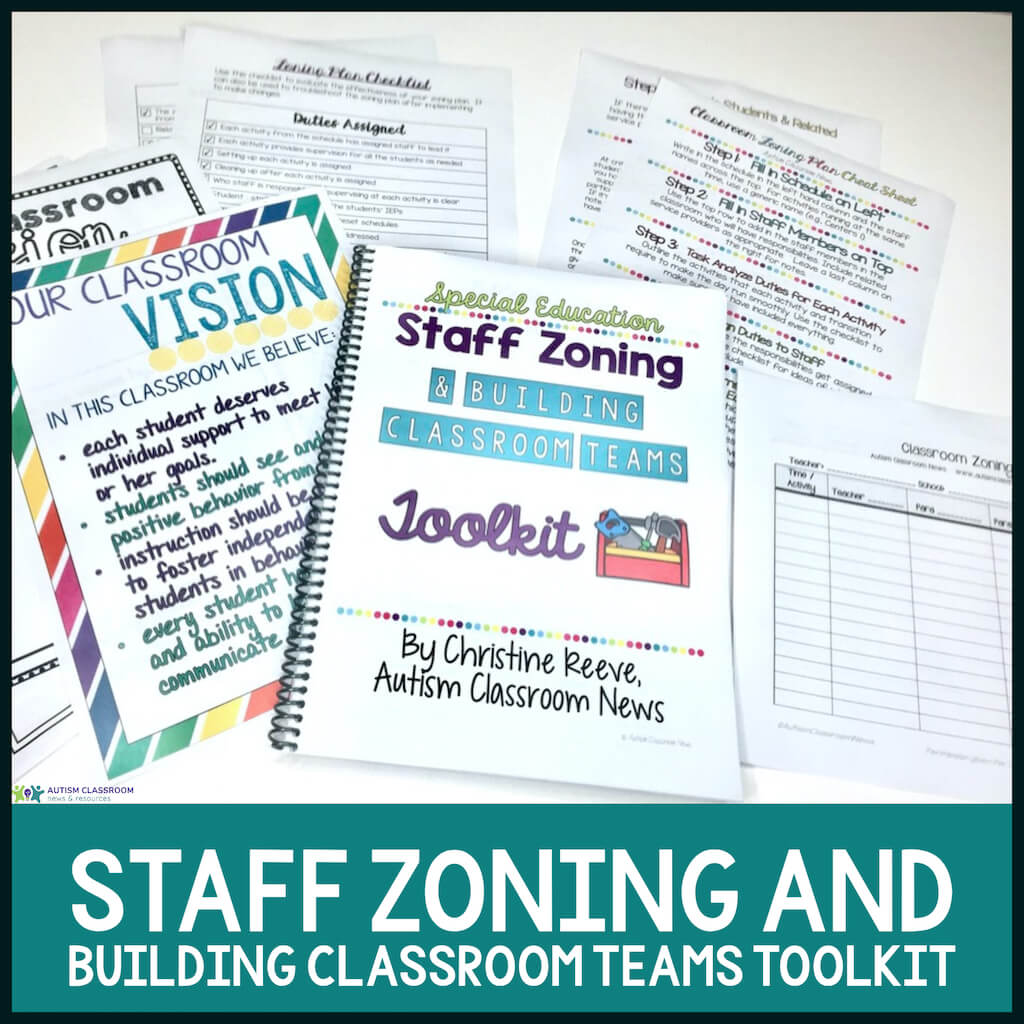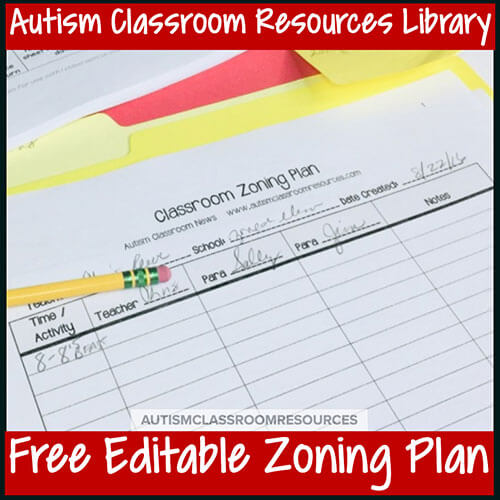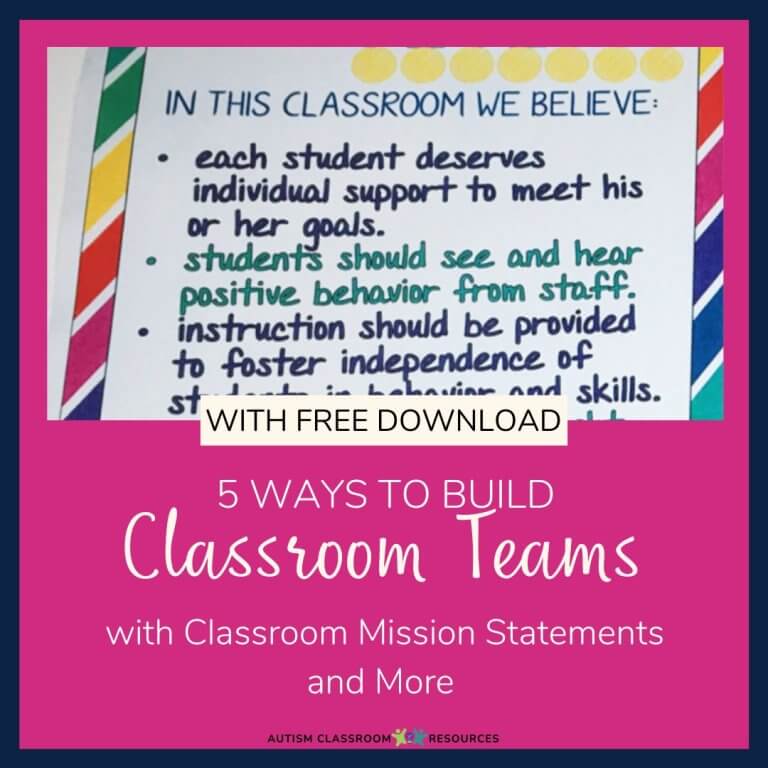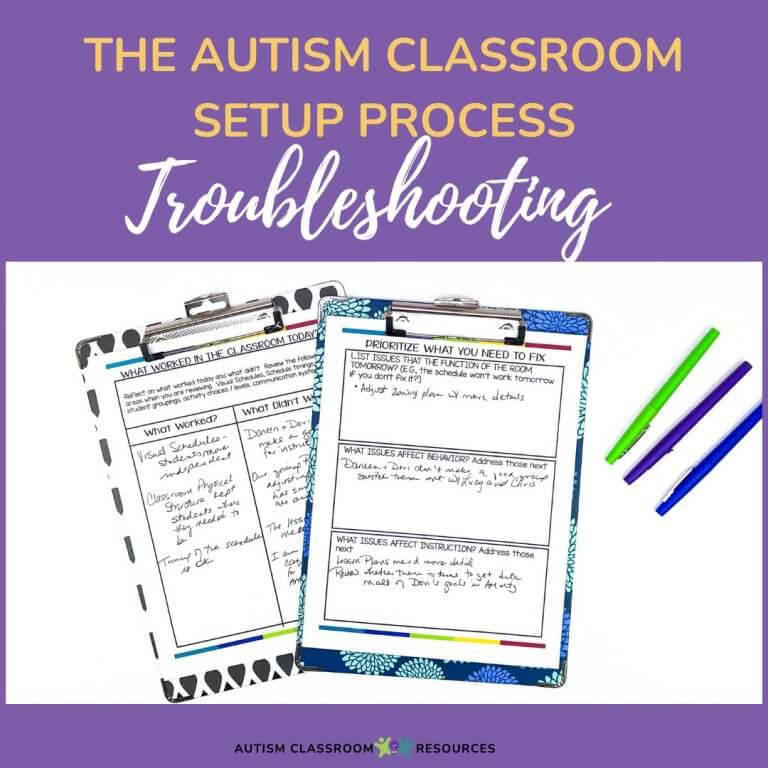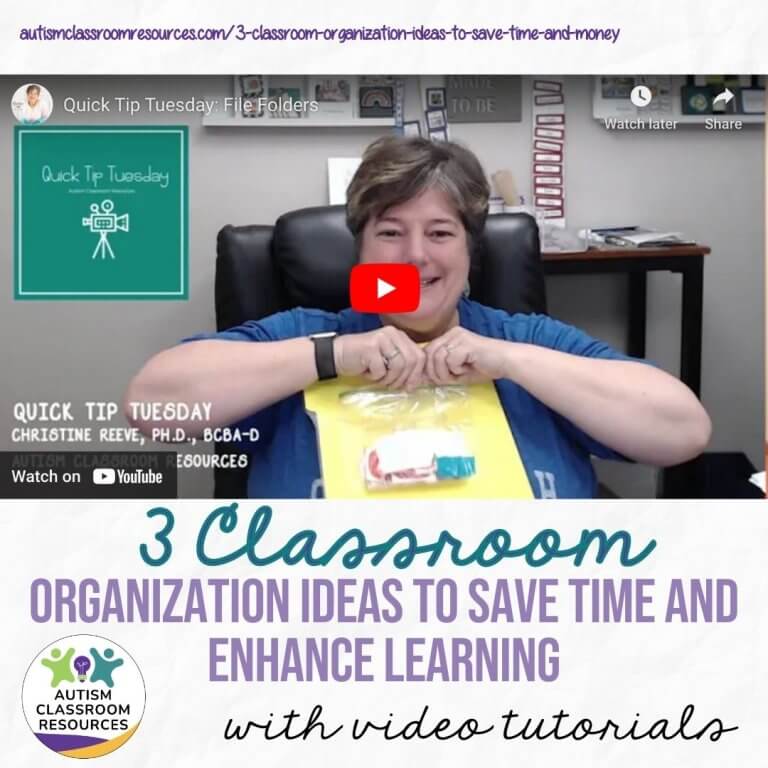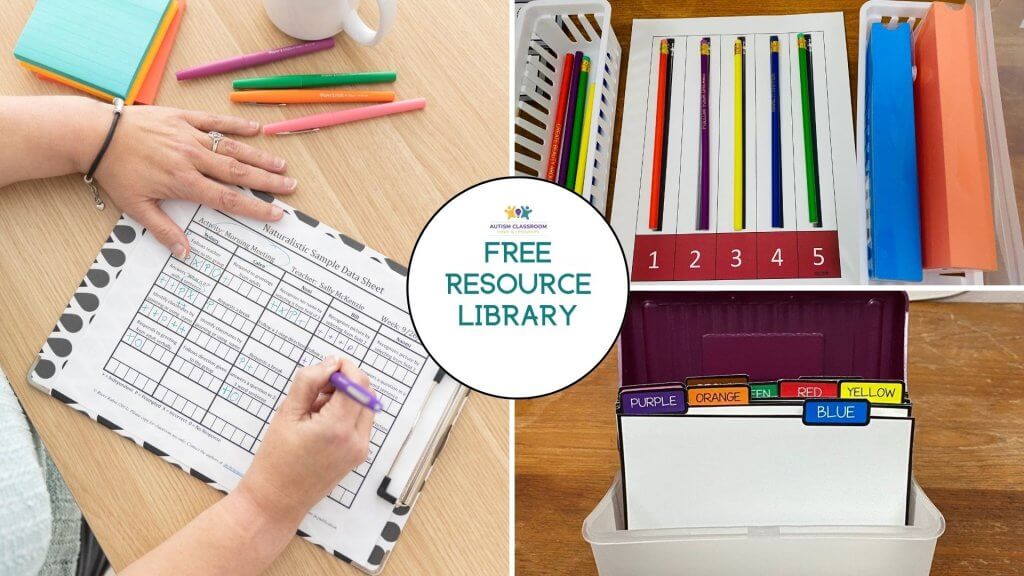A couple of years ago I talked about 5 reasons to use a zoning plan to manage your staff. In the past I’ve talked about the importance of zoning plans in your classroom and you can read my previous posts about them here, here, here and here. Today I want to talk about 3 more reasons to use a zoning plan in your room and ways that it can help you.

First, for anyone who doesn’t know what a zoning plan is, it’s a written document, typically created as a team that outlines what each class staff member (including related service providers at times) does at each time of day in the schedule. It includes everything from who is running morning meeting to who takes the walkie talkie when you go for a walk outside the classroom. You can catch some examples of zoning plans in this post and there is a link to a free form to use to make them.
Today’s focus is on the more secondary reasons to use a zoning plan in your room whether in a general education room with more than one staff member, a resource room or a self-contained classroom. These are 3 more reasons a zoning plan will help you.
First Reason You Need a Zoning Plan: Automation
A zoning plan automates all the tasks in the classroom. When you get it right and settled (there are always lots of little changes until you get one that works), it tells everyone what to do and then you don’t have to. I love it because this means I can focus my attention and my language on the students and not the adults. The more that everyone knows what to do, the more engaged they can be with the students instead of each other.
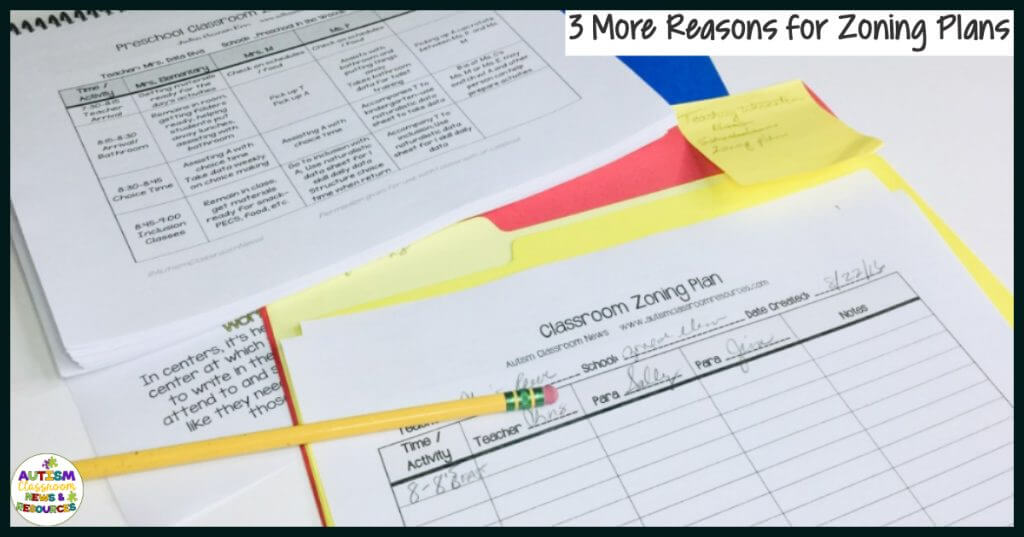
The Second Reason to Use a Zoning Plan: It’s Great for Substitutes
When I create a zoning plan I also create alternate plans for when a person is absent. One alternate is easy to make for a substitute. Let’s face it, when you are out sick, if there is a substitute, I’m betting it’s your paraprofessionals who fills your shoes. If you have a substitute, a zoning plan allows the para to step into the teacher’s shoes and run the classroom, since he/she knows the kids and the routine). I just change the plan so that the para’s name is in the teacher’s spot and the sub’s name is in the teacher’s spot. This eliminates the sub getting upset because he/she isn’t the “teacher” of the class.
Third Reason to Use a Zoning Plan: Paraprofessional Training
Another alternate plan I make is a “1-Man Down” plan. This is a plan for the days when someone is absent and you DON’T have a substitute. On those days you have shift around the students in centers so there is one less to be staffed and make other adjustments to run the room effectively with 1 fewer people. This is really helpful because those aren’t times you really want to have to think about what to do…you can just pick up the one-man down plan.
However, the other real benefit to the 1-Man Down plan is that you can use it on some days to free you up, as the teacher, to observe and train staff. We all know there is never enough time with the class team to really train them to implement strategies. It came up in a discussion about how to train staff to take data. One way to be able to provide training is to run a 1-Man Down day when everyone is at school. You can also do this if you ever have the opportunity when students are absent, but that doesn’t always happen. It doesn’t have to be and shouldn’t be a frequent occurrence, but it’s difficult to determine if interventions are implemented with fidelity and consistently if you are always involved with students yourself. The 1-Man Down zoning plan frees the teacher up to watch and train staff.

